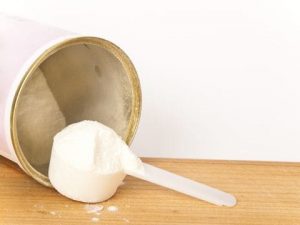Dec18Collagen craze! What you need to know
Collagen?
Collagen is a fibrous protein that helps make up the connective tissues in your body. That means collagen is in your skin, hair, joints, bones, muscles, veins, and organs.
More than 30 percent of your body’s structural protein is collagen.
All collagen is made up of amino acids, which are the building blocks of protein. Your body uses these amino acids to repair its tissues (think: muscles, bones, and joints),basically, collagen is what holds those tissues together.
So this is why many products are coming out trying to help you improve collagen, especially that collagen decreases when you get older.
So Where Does Collagen Come From?
Just like many other nutrients, you do not need a supplement to get collagen.
Collagen can be found in animal proteins like dairy, eggs, chicken and bone broth. Your body will also naturally make collagen from certain amino acids and vitamins and minerals like vitamin A, vitamin C, and copper, she says. Actually, vitamin C is necessary for collagen formulation, so being deficient can harm your body’s natural production.
After about 25 to 30 years of age, your collagen levels start dropping by about 1 percent per year, which means that our bodies aren’t repairing themselves as fast as they once did, Michalczyk says.
Should You Supplement with Collagen?
Right now there is not much research that shows that the collagen we digest gets turned into the collagen in our tissues.
That’s where we lose control of the process. Because just as you can’t eat cookies and tell your body where to store fat, you have no say how amino acids will be used.
Instead, the amino acids derived from breaking down ingested collagen (or any other protein you eat) are distributed throughout the body based on which area needs them the most.
Because major organs like the heart and brain use collagen to function, it’s likely that you won’t immediately notice differences in your muscles, joints, or bones, says Phipps. But chances are you won’t really feel it in your heart and brain, either.
Is Collagen Good for Joint Aches and Pains?
If Collagen’s role with skin health is the most proven, then consider the potential for improving joint health as the most promising.
But you should always see a doctor or therapist before leaning towards collagen to magically heal you.
Skin Health & Collagen?
If there’s an area that’s most promising, it’s collagen’s ability to help skin health. Most evidence surrounding oral collagen supplementation shows that it can improve skin complexion and reduce so-called imperfections.
How Does Collagen Affect Bone Health?
While collagen may be good for your joints, claims that collagen is beneficial for bone density are unsupported.
Will Collagen Improve Your
Workout Performance?
Like many supplements (creatine and caffeine being exceptions to the rule), there’s no magic pill hiding in collagen.
So if your goal is to build muscle and get bigger lifts you could just as easily supplement with a cheaper alternative such as whey protein, which also tends to have 15 to 20 grams of protein per scoop, compared to the typical 10-gram serving in collagen products. The choice is up to you and your budget.
What About Collagen and Gut Health?
There aren’t any studies that show collagen has a positive effect on gut health.
The Buyers Guide: Good
Collagen vs. Ineffective Collagen
If you decide you want to try a collagen supplement, it’s important to know that all collagen is not created equal.
Options: you can buy a product with the specific type of hydrolyzed collagen — “type II collagen” (sometimes labeled UC-II) — that has been shown to have benefits in research, or stick with a product that is purely collagen peptides. Both of these variations are more likely to make it through the digestive process and still provide value for your body.
If it doesn’t have type II specified or use collagen peptides, you should have less confidence that the product will deliver on its promises, no matter what the label claims.
To make sure the collagen supplements contain just what they claim (and nothing else), your best thing to do is to choose a tub that has been third-party tested by a company such as NSF International. You should see this mark right on the label.
A very popular brand is Vital Proteins.
How to Get More Collagen Naturally
While collagen supplementation may benefit some, you don’t need to buy a product to add collagen to your diet. Instead you can:
- Regularly eating vitamin C-rich foods such as citrus fruits, dark leafy greens, strawberries, and blueberries. Vitamin C is critical to collagen production. It’s because vitamin C deficiencies are linked to a decline in natural collagen production, so prioritizing the vitamin may help keep your collagen levels up.
- Eating foods high in vitamin A, such as sweet potatoes, carrots, and spinach can also help. Much like vitamin C, vitamin A helps your body maintain its collagen levels.
- Eating protein-rich foods at meals and snacks- Great options include animal proteins, eggs, and dairy.
- Making your own bone broth or stock.- Bone broths and homemade soups are jam-packed with collagen. You don’t need to go out and buy a bone broth mix from a store. You can make your own. The real trick: the longer you let it boil, the more collagen you’ll receive from the broth.


